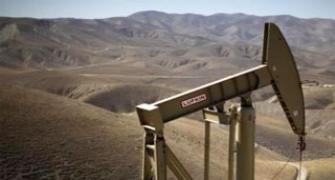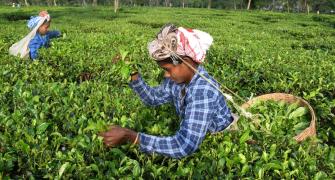 Prices pegged at $57/bbl up from earlier forecast of $53/bbl
Prices pegged at $57/bbl up from earlier forecast of $53/bbl
The World Bank on Wednesday upped its crude oil forecast to $57 a barrel (bbl) for 2015 from its earlier forecast of $53 a barrel in April.
The revised projection comes after a 17 per cent rise in the April-June quarter, according to the World Bank’s latest Commodity Markets Outlook.
However, even the new forecast is over 40 per cent down from $96 a barrel in 2014.
The projection came a day after Gary Ross, known as the oil guru who predicted last year’s rout, said oil would reach $100/bbl within five years.
At the aggregate level, energy prices rose by a less extent at 12 per cent in the last quarter as the steep rise in oil prices was offset by the declines in natural gas by 13 per cent and coal prices by four per cent.
But, despite the rise in the previous quarter, the WB projects energy prices to average 39 per cent below the 2014 levels, on account of a oversupply and weak demand.
The WB expects non-energy prices to fall 12 per cent in 2015, with declines observed across all main indices.
Metals prices are also expected to decline largely on account of over-capacity and slowing demand in China. Agricultural prices are projected to decline almost 11 per cent in 2015 on account of excess supply and high levels of stocks.
“Demand for crude oil was higher than expected in the second quarter (in 2015).
"Despite the marginal increase in the price forecast for 2015, large inventories and rising output from Organization of the Petroleum Exporting Countries members suggest prices will likely remain weak in the medium-term,” said John Baffes, senior economist and lead author of ‘Commodity Markets Outlook’.
The surge in commodity prices over the past decade, which many labelled as the commodity super cycle, has been attributed to the sharp increase in demand from China and India.
The WB notes that demand from China and India, although to a lesser in extent in the case of the latter, raised demand for metals and energy, coal in particular, and for food as well.
China’s consumption soared to account for roughly 50 per cent of metals and coal of total world consumption. India’s consumption stood at three per cent for metals and nine per cent for coal.
But the two countries are now likely to show divergence in their growth paths.
China is expected to slow down below seven per cent in the coming years, transitioning towards a service-oriented economy. In contrast, India’s growth is expected to move upwards and sustain at a 7 plus trajectory over the coming years.
Alongside the economic transition, the two countries are also likely to witness a demographic transition.
China’s population growth is expected to decline further over the next decade to about 0.3 per cent per annum, while India’s population is expected to grow faster than China’s at roughly one per cent over the next decade.
The interplay of these factors, the bank argues, is likely to lead to shifts in global consumption.
For one, as China transitions towards a service-oriented economy and in the absence of a shift in India’s growth structure, metal consumption is likely to slow down.
But if India’s growth structure shifts towards industry, and if the two countries continue growing and reach Organisation for Economic Cooperation and Development income levels, then demand for metals, oil, coal and energy consumption is likely to remain strong.
As food consumption in both countries is already comparable to world levels, upward pressure on food prices is likely to remain muted as their population growth eases.










